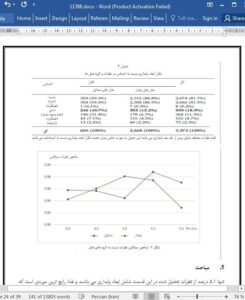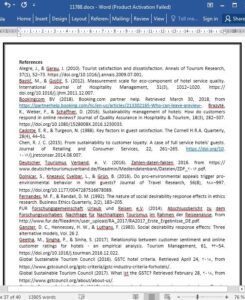Abstract
Sustainability is a global megatrend and has gained increasing attention in the hospitality industry. To facilitate sustainable development, it is important to understand how sustainability relates to customer satisfaction. Previous studies do not consider specific sustainability measures in hospitality and neglect eWOM as an objective data source.
This study investigates the extent to which sustainability aspects play a role in eWOM and how sustainability orientation in general as well as specific sustainability measures are linked to customer satisfaction. The results indicate that although only a few online reviews contain sustainability aspects, there is a relationship between sustainability orientation and customer satisfaction that is moderated by star classification. Furthermore, the results show that the relationship differs depending on the specific sustainability measure. Among the observed measures, "dissatisfiers" as well as "satisfiers", "criticals" and "neutrals" are found, supporting Cadotte and Turgeon's categorization of attributes in the context of sustainability.
1. Introduction
Sustainable tourism aims to mitigate tourisms’ damage to the environment and society by promoting tourism that “takes full account of its current and future economic, social and environmental impacts, addressing the needs of visitors, the industry, the environment and host communities" (UNEP & UNWTO, 2005).
Sustainable hospitality aims at minimizing these negative impacts by implementing sustainability measures in accommodations (Prud'homme & Raymond, 2013).
6.3. Limitations and future research
There are several limitations in the current paper, which grant opportunities for future research. First, our study analyzed online reviews, which are written by a very small segment of the German population. For this reason, our data are not representative of all German-speaking tourists, and additional research in this field is needed to confirm our results. As our data relate only to Germany, the findings may not be generalizable to other markets. To investigate whether cultural differences play a role in the observed effects, further research should be conducted using review data from other countries.










